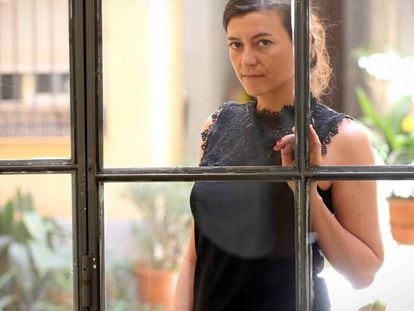Nicaraguan writer Sergio Ramírez takes Spain’s Cervantes Prize
Central American novelist and journalist was a Sandinista revolutionary and vice-president of his country


After three hours of deliberation, and seven consecutive rounds of voting, the jury of Spain’s premier literary prize, the Premio Cervantes, opted to give this year’s award to Sergio Ramírez, making him the first Nicaraguan and Central American author to be bestowed with the honor. He and his wife, Tulita, will be traveling to Spain in April of next year to receive the award from Spain’s King Felipe.
Ramírez is a writer in the broadest sense of the word. Now 75, his career has seen him as a novelist, essayist, memorialist and journalist – but also a politician. A man of upright principles, he was committed to the Sandinista Revolution – the popular uprising against the Somoza dictatorship – to the point of having been appointed vice-president, a position he held between 1985 and 1990. He has been critical of the authoritarian course his country has taken, and the international prestige of his conscience – his works have been translated into 20 languages the world over – weighs heavy on him.
Ramírez was also once a lawyer, but he was captivated early on by literature and it pulsed within him his whole life
Ramírez was also once a lawyer, but he was captivated early on by literature and it has pulsed within him his whole life, together with his activism for political, social and civil causes. Until 1996 he shared his literary career with politics and the law, but from that moment on he dedicated his time exclusively to creating.
His work is imbued with a rich blend of civic commitment, a line of thought that questions reality, and constant attention to the currents of the times in which he has lived.
The jury, which was presided over by Darío Villanueva, the director of the Spanish Royal Academy (RAE), stated that the author’s work “unites narration, poetry and the rigor of the observer and the actor.” It also, it added, “reflects the liveliness of everyday life turning reality into a work of art, all with an exceptional literary skills and in a plurality of genres, such as stories, novels and journalistic columns.”
Born in 1942 in Masatepe, Ramírez, had, by the age of 18, already published his first stories. During his years as a law student, he founded the Ventana literary magazine and in 1970 he published his first novel, Tiempo de fulgor.
His work “unites narration, poetry and the rigor of the observer and the actor”
The jury’s decision was announced on Thursday by Spanish government culture minister Íñigo Méndez de Vigo, who was accompanied by Eduardo Mendoza, the winner of last year’s edition. The minister called Ramírez personally to give him the news. “It’s a good way to start the day,” the minister was told by the author, who had received the news at 7am local time.
Speaking to the press, Mendoza said that he was very happy about the decision, “but at the same time sad, because I feel that my reign is coming to an end.” He also said that he would be calling Ramírez himself to make sure he didn’t get carried away. “I’ll tell him not to be under any illusions, because a year from now he’ll end up on the bench.” He concluded: “It’s a prize that he will carry with great dignity, much better than I have.”
English version by Simon Hunter.












































